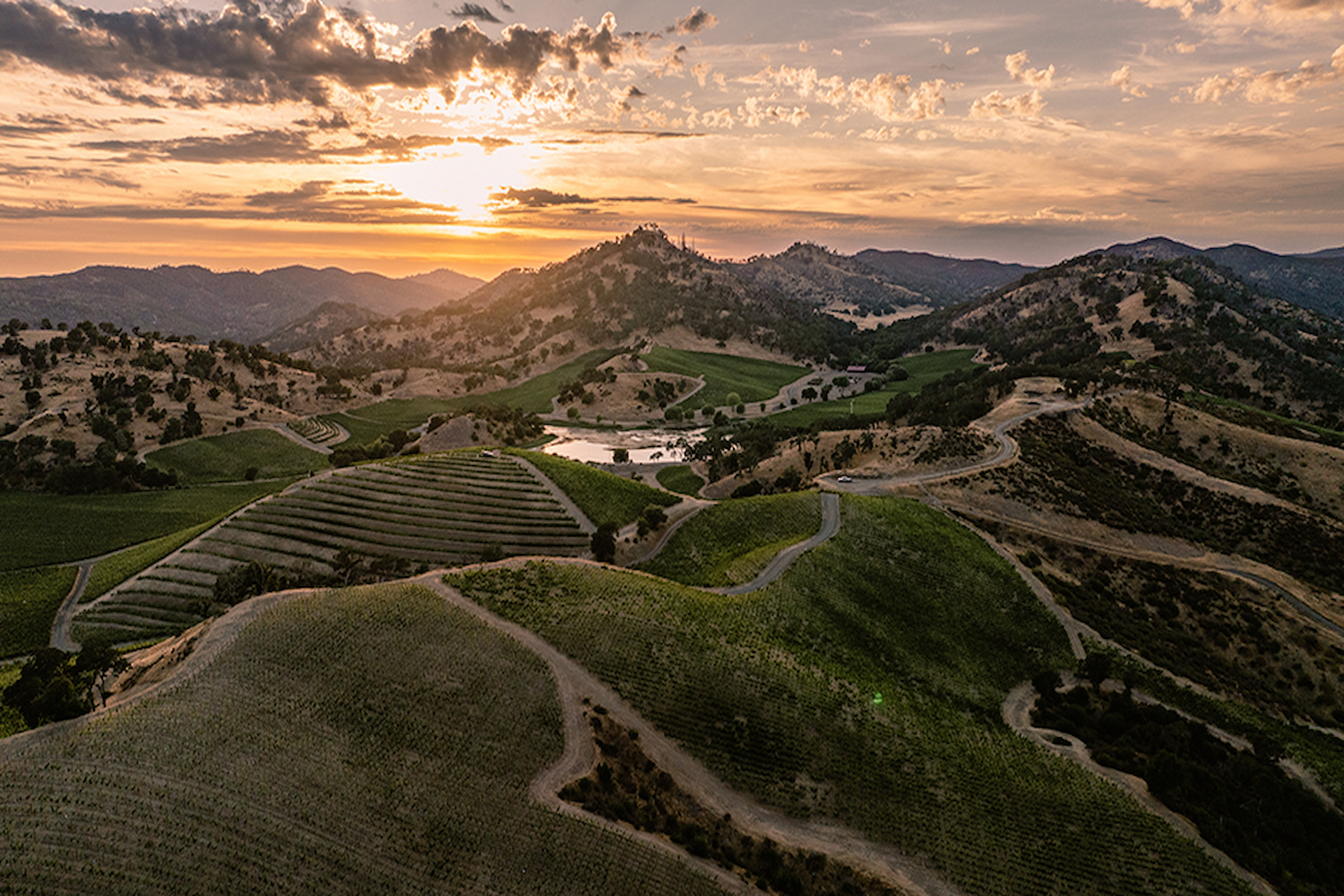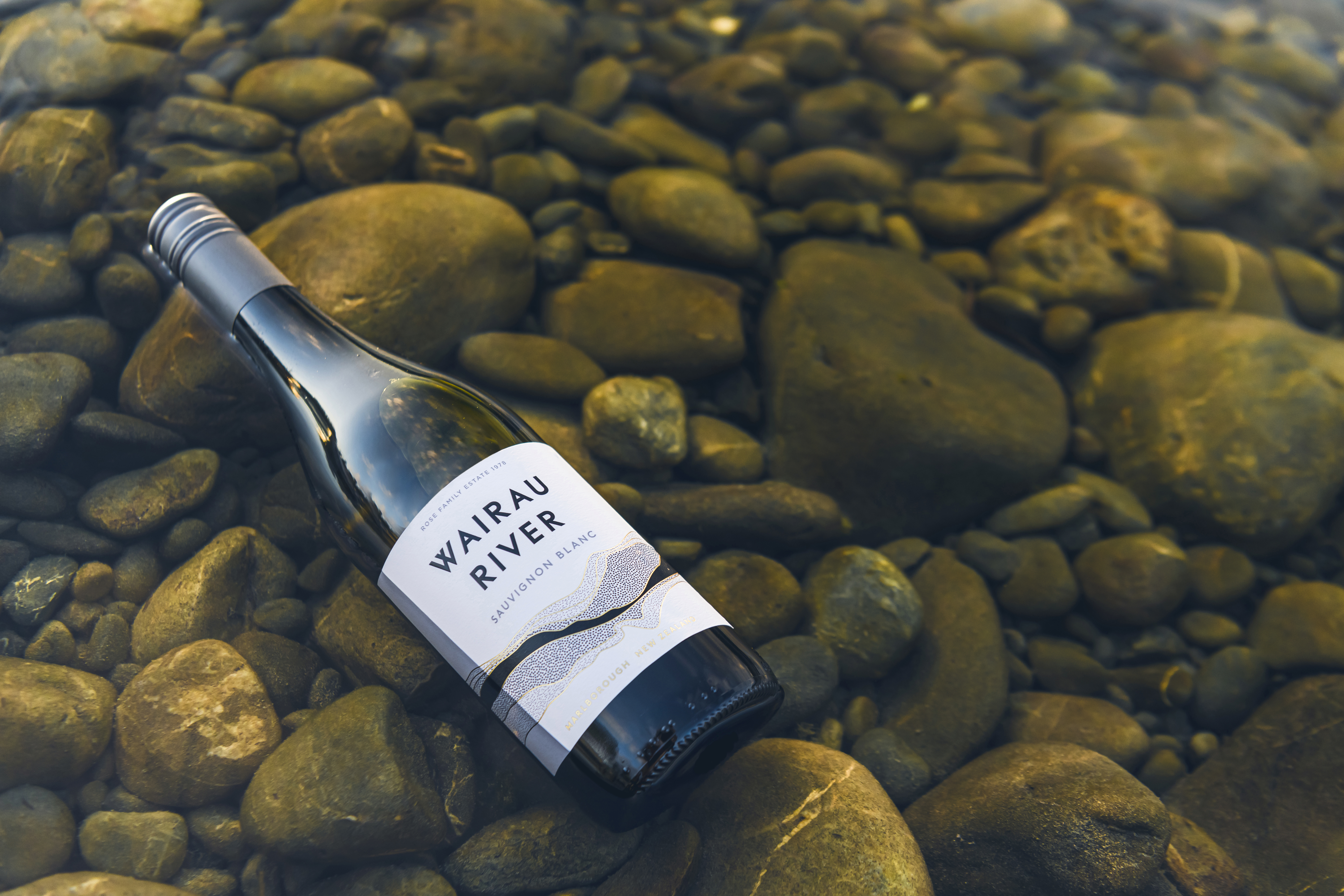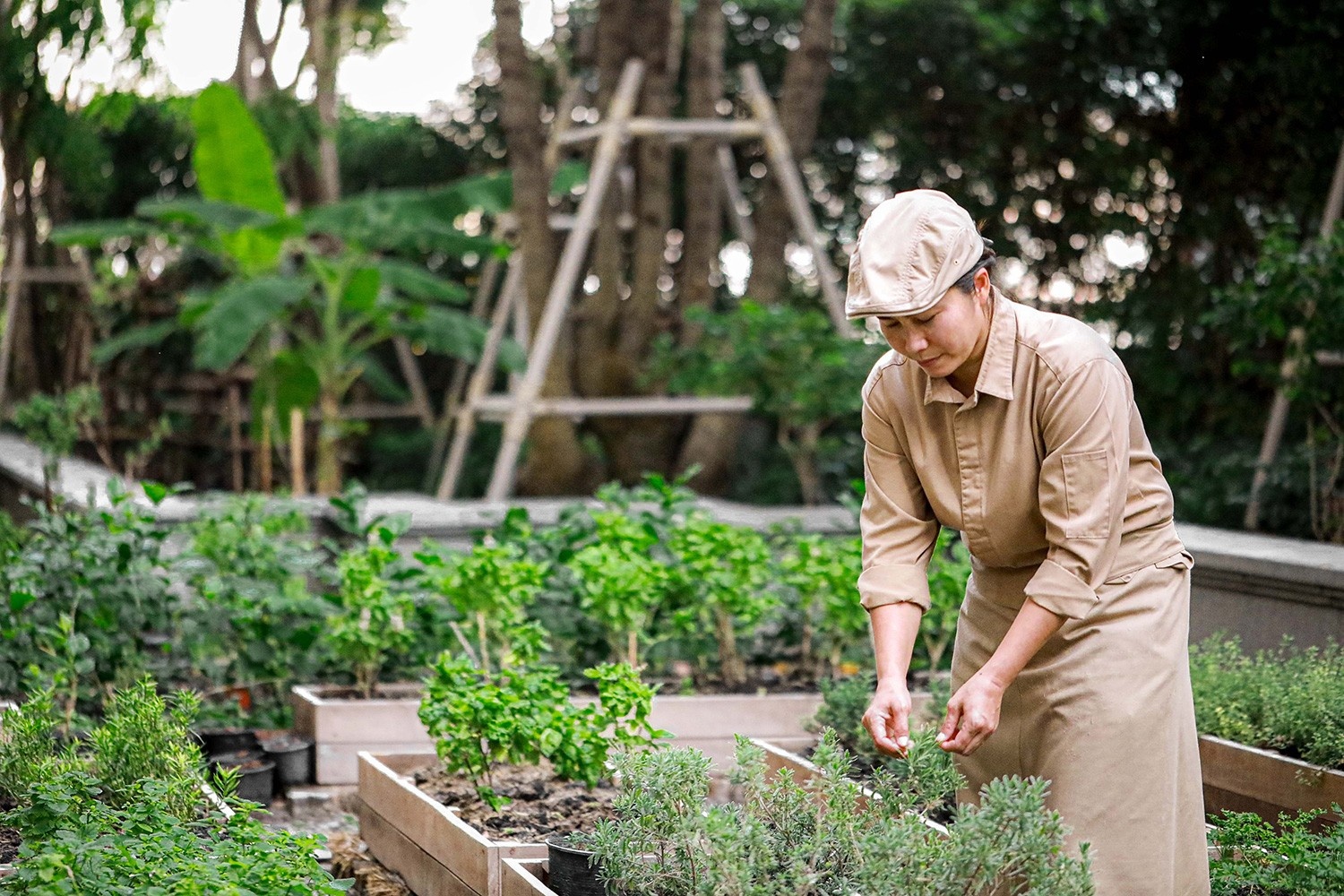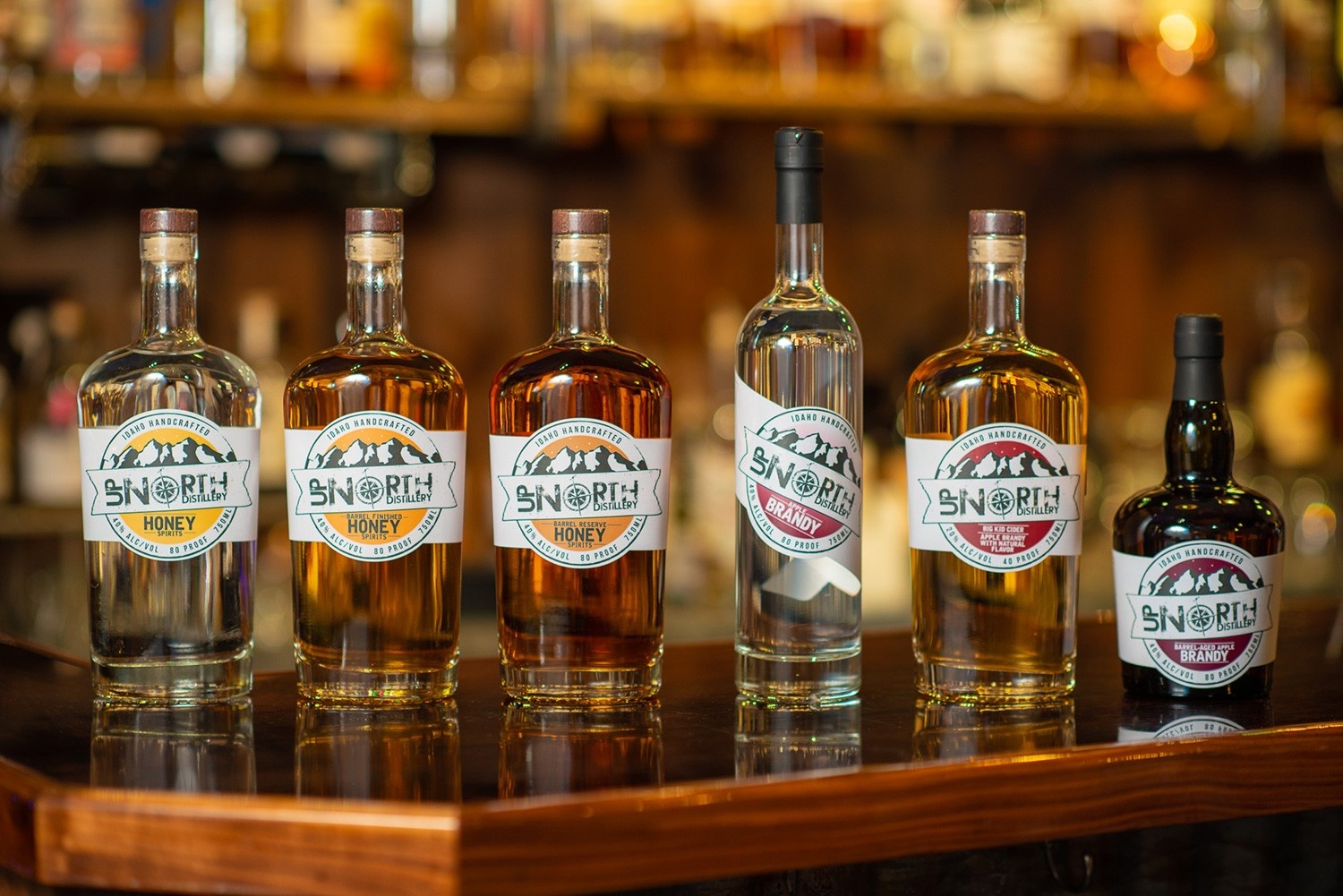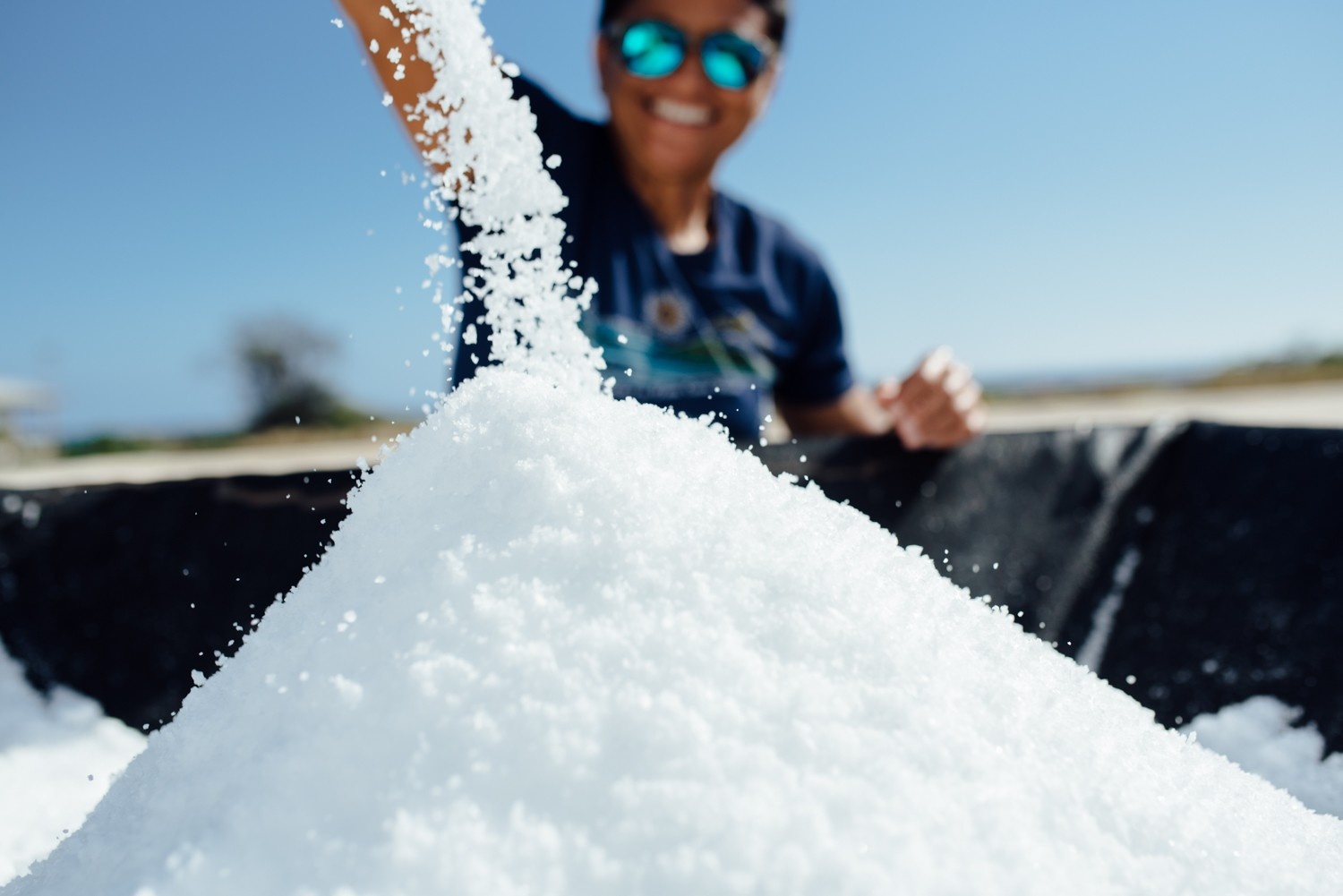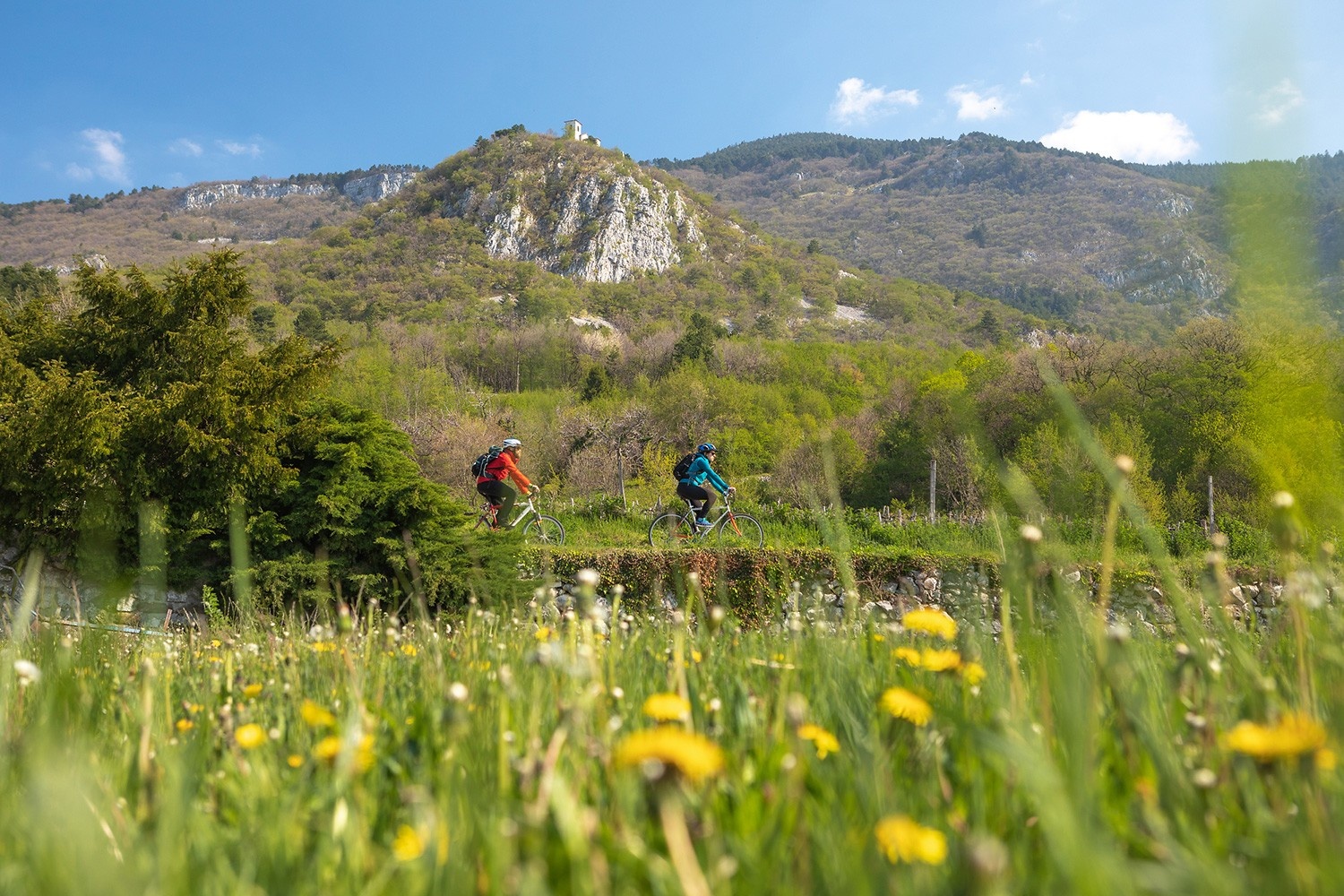North Stars:

Community Support

Energy Efficiency

Diversity and Inclusion
“We’re not a company sitting back, waiting to see where the
industry goes next.”

Priest Ranch Wines shot. Courtesy of Priest Ranch.
For decades, Napa Valley set the standard for American wine tourism. But the old model is showing cracks. Walk-in tastings have largely disappeared, replaced by luxury appointments costing $100 or more. Direct-to-consumer shipments from Napa and Sonoma fell 12 percent in 2024, and across the North Coast region, off-premise sales remain well below pre-pandemic levels. Younger drinkers are skipping wine altogether in favor of spirits, cannabis, or low-alcohol alternatives.
As Baby Boomers age out of the market or shift their consumption patterns, a question hangs over the valley: Who is going to fill their place?
Priest Ranch, a small Yountville-based winery sourcing fruit from its 1,682-acre Somerston Estate, has been asking that question for years. Unlike many neighbors, its survival strategy isn’t built on exclusivity. Instead, it’s cultivating a younger, more diverse audience by focusing on inclusivity, sustainability, and lowering barriers to entry.

The Kitchen at Priest Ranch. Courtesy of Priest Ranch.
Creating Entry Points
When the restaurant next to its tasting room closed during the pandemic, Priest Ranch turned it into The Kitchen at Priest Ranch, a café with a breakfast and lunch menu. “We launched with an approachable breakfast and lunch menu, which also opened the door to private catering opportunities and cultural marketing events in the evening, always rooted in our philosophy of bringing together wine, food, and the arts,” says CEO Judd Wallenbrock.
The Kitchen quickly evolved into a gathering place. Thursday Night Live concerts, visiting chef dinners, drag brunches, and the annual Smashburger Smackdown attract both locals and visitors. “From locals stopping by each morning for breakfast to our special wine-paired menus during the Thursday Night Live music series, it quickly became clear that we were filling a real gap in the community,” Wallenbrock says. “But it was the Smashburger Smackdown we hosted last year—now an annual tradition—that truly captured the community’s excitement.”

Wine tasting shot Priest Ranch. Courtesy of Priest Ranch.
Inclusive Hospitality
Tastings at Priest Ranch are deliberately playful. “Is bacon your gateway to wine? Chocolate? Maybe mustard and pâté?” asks CEO Judd Wallenbrock. The idea is to keep the focus on enjoyment rather than technical detail. “Our goal isn’t to overwhelm guests with talk of brix or pH levels. Instead, we focus on how to enjoy the wine.”
That lighter touch aligns with the audience already coming through the door. Many visitors are younger and more diverse than Napa’s traditional demographic, which Wallenbrock says “made the connection come naturally.”
Programming reinforces the same ethos. Pride Month drag brunches, global food pairings, and live music are designed to make the winery feel accessible to a wider community. “They’re one of the many ways we show up for all communities, creating a welcoming, inclusive, and joyful space,” Wallenbrock says. The response has been enthusiastic, bringing new audiences into the fold.
Priest Ranch also links hospitality to philanthropy. The Mood Enhancing Tasting, a collaboration with Happiness Foods, pairs serotonin-rich pumpkin seeds with the winery’s bottlings and donates proceeds to Mentis, a Napa nonprofit offering mental health services. “As a family-owned winery, giving back is part of our DNA,” Wallenbrock says.

Sauvignon Blanc wine being poured at The Kitchen. Courtesy of Priest Ranch.
Sustainability at the Estate
Somerston Estate stretches across 1,682 acres of hills east of Yountville. Only 207 acres are planted to vines; the rest is rangeland, reservoirs, and oak-dotted slopes managed for conservation and fire prevention. For Director of Vineyard Operations Jame Knoblock, the size of the property makes sustainability inseparable from day-to-day farming. “A truly sustainable operation involves many interconnected efforts, replenishing aquifers, maintaining healthy soils, and actively working to reduce our carbon footprint,” he says.
The challenge begins with water. Five reservoirs supply all irrigation and frost protection, which means a dry winter immediately constrains the growing season. Before turning on the pumps, Knoblock’s team studies soil moisture probes, evapotranspiration data, plant stress, and weather forecasts. “Thoughtful planning and conservation become essential to sustaining the vineyard,” he says.
Energy use is another pressure point. Power outages are frequent in the hills, so the estate is investing in solar panels and battery storage. “We’re actively working toward operating on 100 percent renewable energy,” Knoblock says. Several pumps already run on solar, while sheep and goats graze the slopes to control vegetation. Compost and biochar are incorporated to build soil fertility. The winery holds Napa Green certification, and the vineyard is advancing through the LandSmart program.
Visitors who tour the property see these systems at work. ATV rides wind through cover crops and grazing animals, past solar-powered pumps and reservoirs. “When guests visit the estate, our head winemaker, Cody Hurd, and I have the opportunity to offer a deeper, more personal look into how we farm and craft our wines,” Knoblock says. “It’s an immersive, hands-on way for them to engage with our story on their own terms.”

The vineyard shot. Courtesy of Priest Ranch.
Beyond Napa
Priest Ranch also extends its reach with Priest Ranch on the Road, taking bacon-and-wine pairings, terroir tastings, and cultural events into homes, offices, and country clubs. “Not everyone can make it to Napa Valley, so we created Priest Ranch on the Road: a way to bring our wines and experiences to people where they are,” Wallenbrock says.
The effort has built strong loyalty. “Our events have cultivated a loyal following, with many guests returning time and time again,” he says. “They’ve become like family—everyone knows each other by name. And more often than not, they bring friends along to proudly share ‘their winery.’”
For Wallenbrock, the lesson is simple. “We’re not a company sitting back, waiting to see where the industry goes next,” he says. “We’re actively shaping what’s next, taking on challenges head-on, and reimagining how people experience wine.”
By combining sustainable farming, inclusive hospitality, and accessible entry points, Priest Ranch has created a model that feels relevant to younger audiences. In a valley where the traditional approach is faltering, it offers a clear example of how to stay nimble and connected.
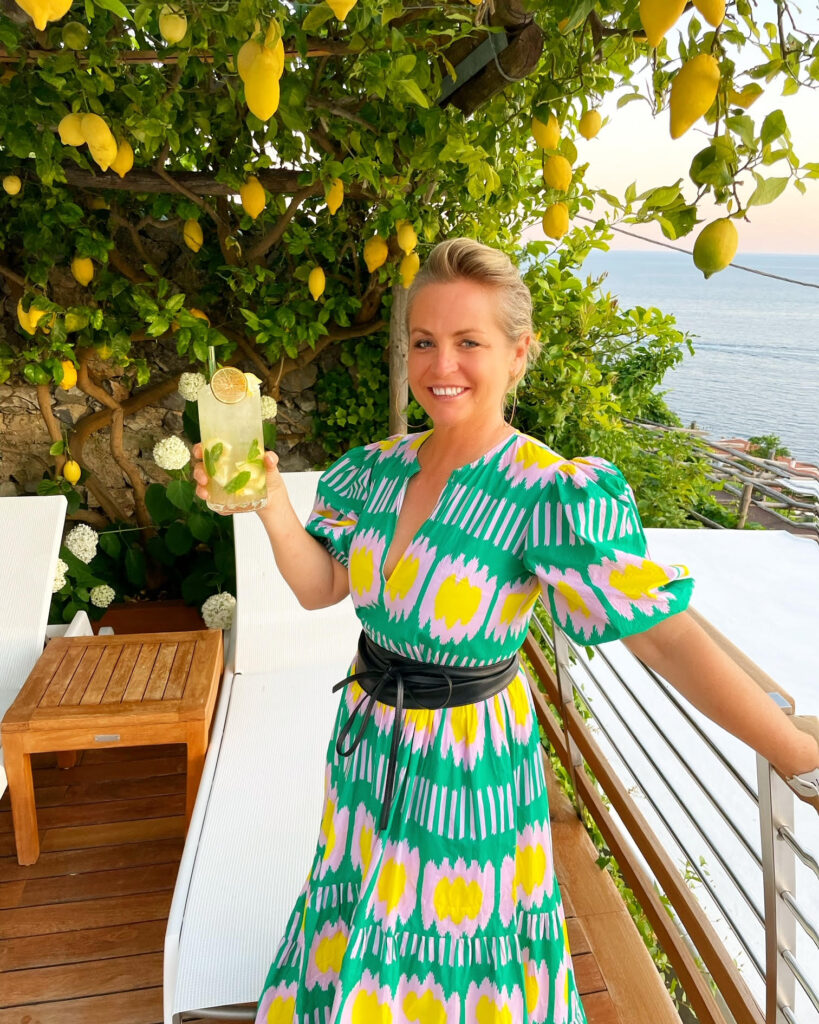
Founder and CEO of Azure Road, Lauren Mowery is a longtime wine, food, and travel writer. Mowery continues to serve on Decanter Magazine’s 12-strong US editorial team. Prior to joining Decanter, she spent five years as the travel editor at Wine Enthusiast. Mowery has earned accolades for her writing and photography, having contributed travel, drinks, food, and sustainability content to publications like Food & Wine, Forbes, Afar, The Independent, Saveur, Hemispheres, U.S. News & World Report, SCUBA Diving, Plate, Chef & Restaurant, Hotels Above Par, AAA, Fodors.com, Lonely Planet, USA Today, Men’s Journal, and Time Out, among others.
Pursuing her Master of Wine certification, she has also been a regular wine and spirits writer for Tasting Panel, Somm Journal, VinePair, Punch, and SevenFifty Daily. Mowery is a graduate of the University of Virginia and Fordham Law School, and she completed two wine harvests in South Africa.
Follow her on Instagram @AzureRoad and TikTok @AzureRoad
North Stars: Community Support, Diversity and Inclusion, Energy Efficiency


